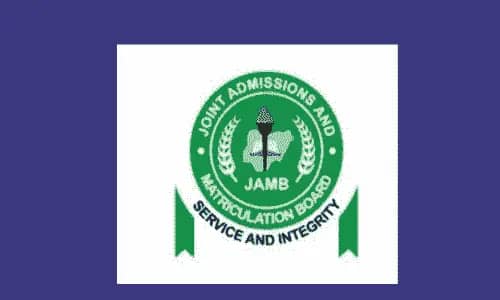
Are you preparing for the JAMB 2025/2026 Economics exam? Understanding the key JAMB areas of concentration for Economics is crucial to maximizing your chances of success. In this guide, we’ll explore the most important topics you should focus on and provide a clear breakdown of the Economics syllabus for the upcoming exam.
JAMB Areas of Concentration for Economics 2025/2026
The JAMB Economics exam plays a significant role in securing admission to tertiary institutions in Nigeria. This exam evaluates your knowledge in various areas of Economics, so focusing on the right topics is essential. The areas of concentration cover a wide range of subjects, from fundamental economic theories to specific applications in Nigeria’s economy. Mastering these areas will help you excel in the exam.
Areas of Concentration for the JAMB Economics
The JAMB areas of concentration for Economics 2025/2026 include a broad spectrum of topics. Here’s a detailed look at the areas you should prioritize:
1. Economics as a Science
Understanding Economics as a science is foundational. Focus on the scientific approach to analyzing economic behavior and decision-making.
2. Economic Systems
Study the various types of economic systems, including market, command, and mixed economies.
3. Methods and Tools of Economic Analysis
Learn the tools used to analyze economic phenomena, such as supply and demand curves, graphs, and models.
4. The Theory of Demand
Master the laws of demand and factors that influence consumer behavior.
5. The Theory of Consumer Behaviour
Understand how consumers make decisions and the factors that affect their purchasing choices.
6. The Theory of Supply
Study how producers decide what to supply in response to market conditions.
7. Price Determination
Focus on the factors that determine the price of goods and services in an economy.
8. The Theory of Production
Understand production processes, inputs, and outputs in various industries.
9. Theory of Costs and Revenue
Learn about the costs of production, revenue generation, and profit maximization.
10. Market Structures
Familiarize yourself with different market structures, such as perfect competition, monopolies, and oligopolies.
11. National Income
Study how a nation’s income is calculated and its implications for economic policy.
12. Money and Inflation
Learn about the role of money in the economy and how inflation impacts economic stability.
13. Financial Institutions
Understand the role of banks, insurance companies, and other financial institutions in the economy.
14. Public Finance
Explore government spending, taxation, and the management of public funds.
15. Economic Growth and Development
Study the factors that contribute to a nation’s economic growth and the distinction between growth and development.
16. Agriculture in Nigeria
Learn about the importance of agriculture to Nigeria’s economy and the challenges it faces.
17. Industry and Industrialization
Focus on the role of industries in economic development and the industrialization process in Nigeria.
18. Natural Resources and the Nigerian Economy
Understand the economic importance of Nigeria’s natural resources and their impact on national development.
19. Business Organizations
Study different types of business organizations, such as sole proprietorships, partnerships, and corporations.
20. Population
Understand the effects of population growth on economic development and resource distribution.
21. International Trade
Learn about international trade theories, trade barriers, and their effects on the economy.
22. International Economic Organizations
Study the role of global organizations like the World Trade Organization (WTO) and the International Monetary Fund (IMF) in shaping economic policies.
23. Factors of Production and Their Theories
Master the four factors of production—land, labor, capital, and entrepreneurship—and their importance in economic theory.
Additional Areas of Focus
Beyond the core areas mentioned, other important topics include:
– Monetary and Fiscal Policies
Understand the government’s role in regulating the economy through monetary and fiscal policies.
– Economic Reforms and Policies
Study the various reforms that have shaped Nigeria’s economy, including structural adjustments and economic diversification efforts.
– Environmental Economics
Learn how environmental factors influence economic decision-making, especially in industries like agriculture and oil extraction.
JAMB Areas of Concentration for Commerce 2025/2026
JAMB Areas of Concentration for Mathematics 2025/2026
JAMB Areas of Concentration for Yoruba 2025/2026
JAMB Areas of Concentration for Arabic 2025/2026
JAMB Areas of Concentration for Use of English 2025/2026
JAMB Areas of Concentration for Music 2025/2026
JAMB Areas of Concentration for Christian Religious Studies 2025/2026
JAMB Areas of Concentration for Igbo 2025/2026
JAMB Areas of Concentration for Agricultural Science 2025/2026
JAMB Areas of Concentration for Hausa 2025/2026
JAMB Areas of Concentration for Biology 2025/2026
JAMB Areas of Concentration for Government 2025/2026
JAMB Areas of Concentration for Geography 2025/2026
JAMB Area of Concentration for Physics (2025/2026)
Bottom Line
Focusing on the JAMB areas of concentration for Economics 2025/2026 is key to doing well in the exam. By mastering the core topics outlined in this guide, you’ll be better prepared for the challenges of the exam. Start studying early, stay organized, and review the material regularly to ensure a thorough understanding.
The JAMB Economics exam is a critical step in your academic journey, so ensure that you give it the attention it deserves.